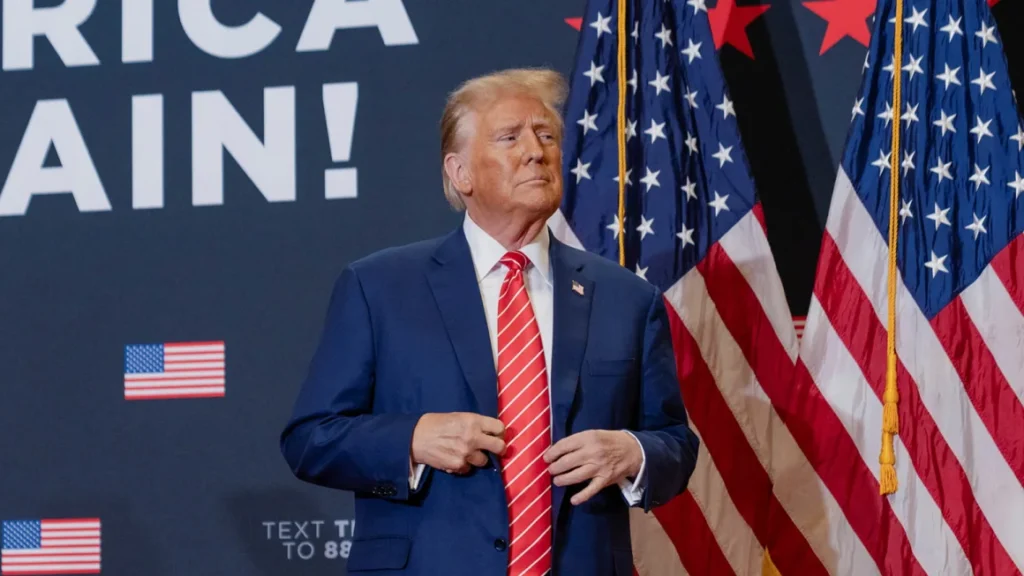
Former President Donald Trump predicted the US economy would “crash,” saying he hoped it would do so within the next year – before he would assume the Oval Office should he win a second term in November.
“When there’s a crash, I hope it’s going to be during this next 12 months because I don’t want to be Herbert Hoover. The one president – I just don’t want to be Herbert Hoover,” Trump said in an interview that aired Monday on the right-wing platform Lindell TV.
The US stock market crashed during former President Herbert Hoover’s first year in office in 1929, which signaled the beginning of the Great Depression.
The comments come as the front-runner for the Republican nomination looks to drive home his message on the economy – and criticism of President Joe Biden – with less than a week to go until Iowa’s pivotal caucuses.
Trump, who regularly attacks Biden over his economic policies, described the economy as “so fragile” in the interview and claimed it was “running off the fumes” of the Trump administration.
A December jobs report on Friday, however, blew past expectations of monthly jobs added, capping off what’s been a year of resilience in the labor market that has fueled consumer spending and economic growth in the past year.
Treasury Secretary Janet Yellen defended the state of the economy in a Friday interview with
“There has been a lot of pessimism about the economy that’s really proven unwarranted. A year ago, most forecasters believed we would fall into a recession. Obviously, that hasn’t happened,” Yellen said, adding, “We have a good strong labor market.”
Besides being spared a recession, the US stock market overcame regional banking turmoil, a debt ceiling crisis and geopolitical tensions last year. The S&P 500 ended the year 24% higher, the Dow rose 14% and the Nasdaq jumped 43%. Still, recession worries linger on Wall Street, as do concerns about war in the Middle East. The election threatens to stir up market volatility, though history shows the S&P 500 index tends to gain during the fourth year of presidential terms.

